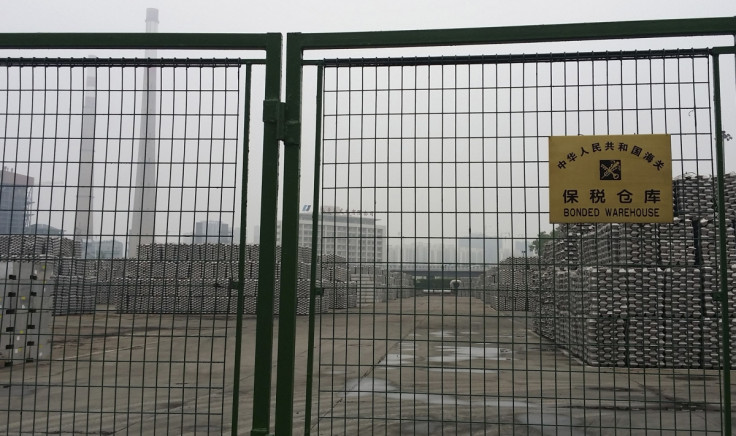Qingdao Probe: HSBC Admits UK Exporters Concerned Over Business in China

UK exporters are concerned about the ongoing probe into commodity financing in China, according to a senior source at HSBC.
Asked by reporters at the launch of a survey in London today about the reaction of UK clients to the investigations in Qingdao, as well as other concerns over transparency in Chinese markets, Rongrong Huo, who is responsible for shaping HSBC's renminbi (RMB) strategy, said: "It sounds like we're trying to push RMB so that clients understand the benefits. But frankly, it's whether clients have confidence in China or not.
"If they follow news, the feedback or experience is that they call myself or others and say: 'what's your view?' People may say that HSBC is slightly bullish on China, but the fairest thing is to represent the issues and challenges."
Investors have been on guard since an inquiry was launched into an alleged commodities fraud in the Chinese port of Qingdao, where a Decheng Trading - a Chinese metals trader - used duplications of warehouse receipts to borrow multiple times on the back of a single cargo of copper, aluminium and alumina.
HSBC followed Standard Chartered, Standard Bank and Citi in confirming they would tighten diligence on commodity transactions in the area following the investigation, which subsequently spread to petrochemicals-related goods in Tianjin.
Huo added that the probes do not effect HSBC's support for Chinese business but that "it's about recognising the imbalance" and "keeping the customer in the loop".
HSBC's head of trade and receivables finance Mark Emmerson added: "We continue to provide commodities financing support to our customers. Recognising the uncertainty of the situation in Qingdao, we are thoroughly assessing each transaction on its own merits, taking into account the interests of our customers, the bank and its shareholders."
Yesterday, the Chinese state-owned metals trader Citic Resources begun legal proceedings against the port operator, seeking the recovery of metals stocks which, upon inspection, were found to be missing.
A number of weeks ago, in a statement issued to the Hong Kong Stock Exchange, Citic said it "has been unable to sequester about 123,446 megatons of alumina which the group has stored at Qingdao Port". In total, the group had held 223,270 megatons in Qingdao.
The company at the centre of the scandal is Decheng Trading - an aluminium trader - and it's been reported that there is $3bn worth of metals stocks on the line.
Sherry Madera, director of financial services for China at the British government's export authority UK Trade and Investment (UKTI) declined to comment on the issue when asked by IBTimes UK.
UKTI and its sister body UK Export Finance (UKEF) has added focus to its efforts to bolster the UK's trade with China in recent weeks.
In June, UKEF signed a Memorandum of Understanding with HSBC and a Chinese company to begin structuring a RMB-denominated export deal for British capital equipment, with Madera saying that the agency is to begin issuing RMB-supported loans and guarantees in an effort to boost bilateral trade.
© Copyright IBTimes 2024. All rights reserved.






